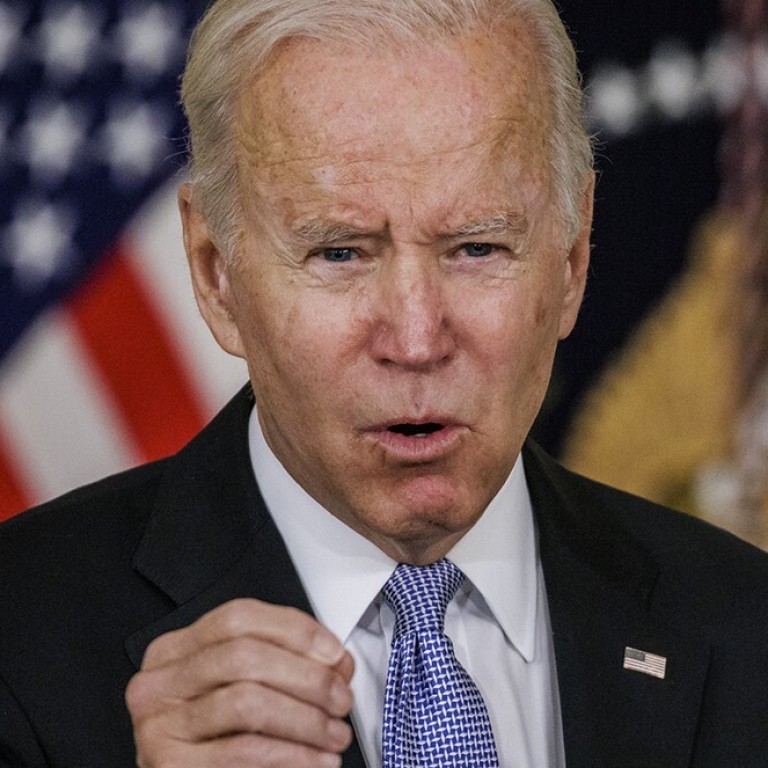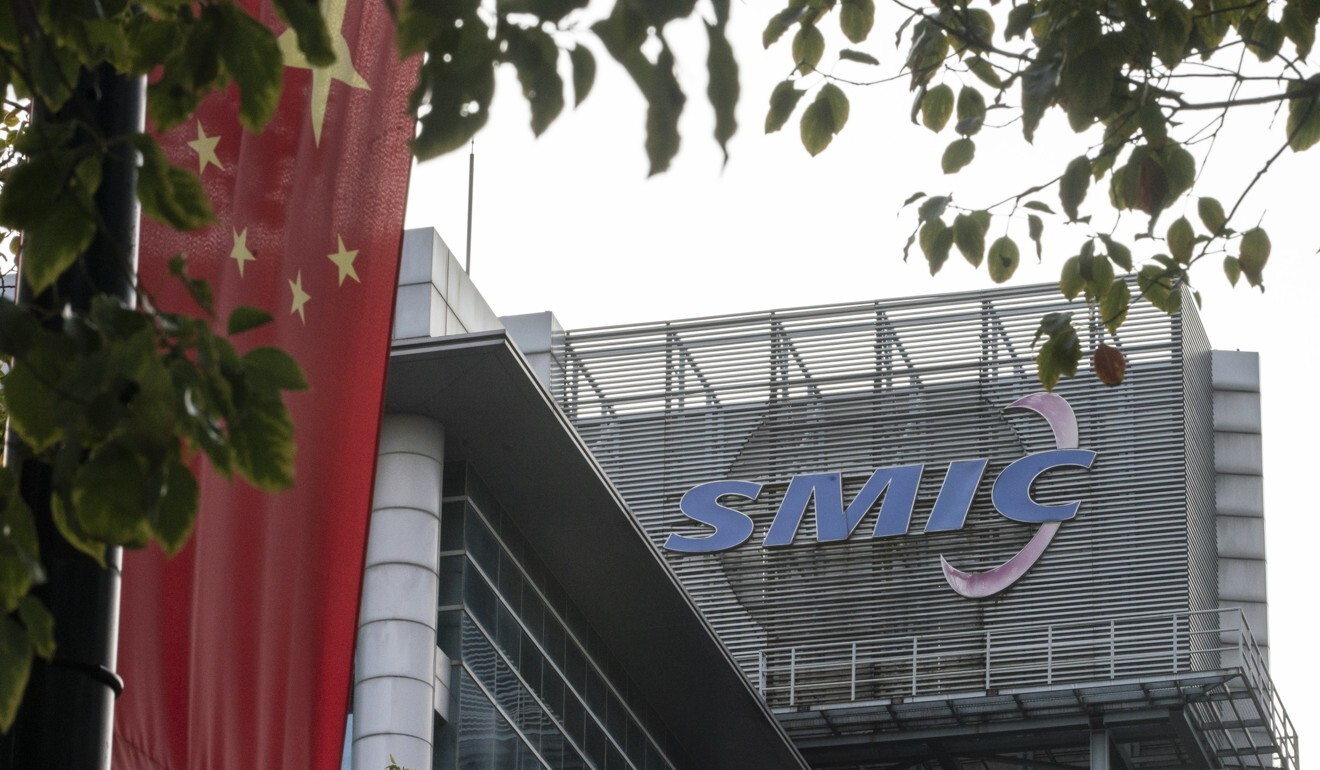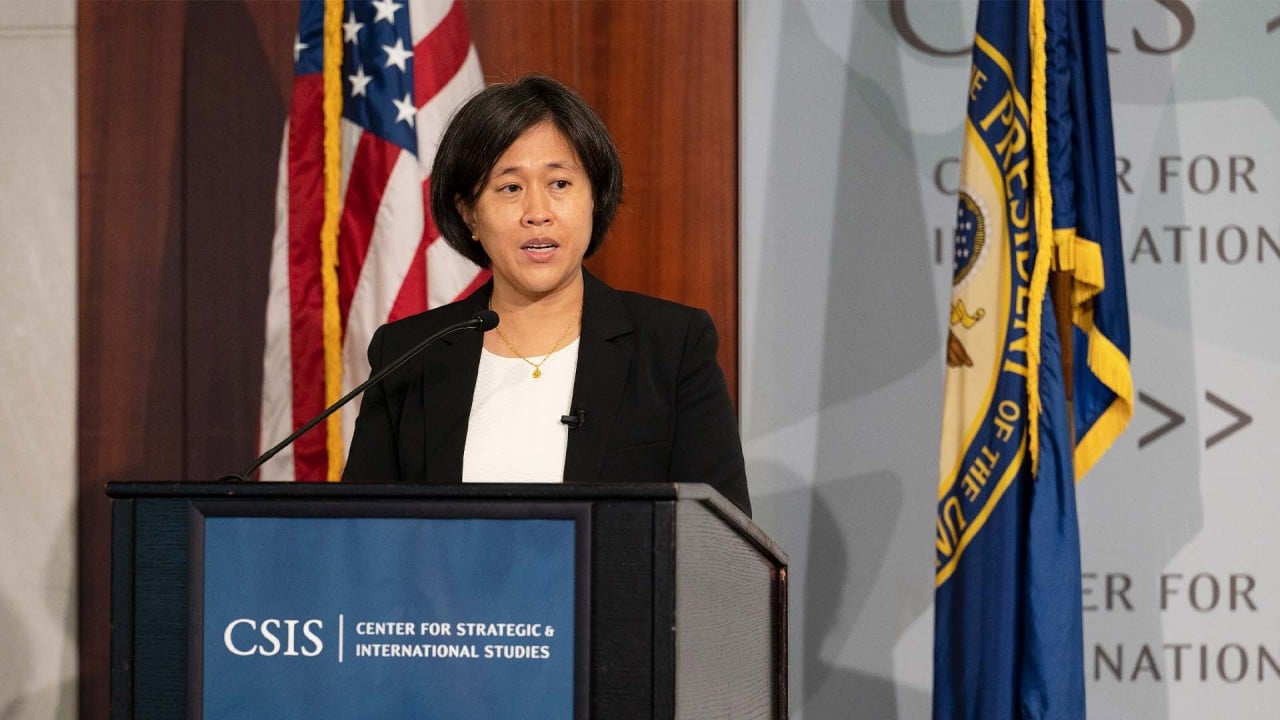
Joe Biden extends investment ban on firms Washington says are linked to China’s military
- The president says China is ‘increasingly exploiting United States capital’ to help modernise its military and intelligence apparatuses
- US entities are barred from buying or selling publicly traded securities in blacklist companies
“The PRC [People’s Republic of China] is increasingly exploiting United States capital to resource and to enable the development and modernisation of its military, intelligence, and other security apparatuses, which continues to allow the PRC to directly threaten the United States homeland and United States forces overseas,” Biden said in a letter to House of Representatives Speaker Nancy Pelosi.

American investors are prohibited from buying new securities in these blacklisted companies on American markets and will be given a year to divest existing holdings.
The Biden administration has continued the hardline approach against China. The president said in the letter on Tuesday that the Chinese government uses its national strategy of military-civil fusion to compel civilian Chinese companies to support its military and intelligence activities.
“Those companies, though remaining ostensibly private and civilian, directly support the PRC’s military, intelligence, and security apparatuses,” he added.
US plans key infrastructure projects to challenge China’s belt and road
If not blacklisted, Biden said, these companies will continue to take advantage of its increasing weight in stock index providers such as MSCI and FTSE to broaden their access to US capital markets.
In the initial executive order signed by Trump, Chinese technology giant Huawei Technologies Co. and video surveillance manufacturer Hikvision were blacklisted by the US Defence Department.
The expansion of the ban in June added surveillance technology firms as a category to the list in an effort to sanction the use of such technology by China in and out of the country to carry out suspected human rights abuses.
Also in June, Biden also authorised the US Treasury Department, which is responsible for enforcing the ban, to also assume the Defence Department’s responsibility for creating and maintaining the list.
The move was met with criticism from China hardliners, with Florida Republican Senator Marco Rubio saying Treasury Department was “too closely aligned with Wall Street to take the actions needed”.

02:18
US trade chief calls for ‘pragmatic approach’ in reveal of China strategy
Meanwhile, Chinese foreign ministry spokesman Wang Wenbin responded that the US government had “abused its national power to suppress and restrict Chinese companies” following the expansion in June.
A handful of Chinese companies filed lawsuits soon after Biden took office to be taken off the list. Xiaomi and Luokung Technology won court battles and were removed from the Defence Department’s blacklist.
Three telecommunications carriers – China Mobile, China Telecom, and China Unicom – had asked the New York Stock Exchange to reconsider its decision to delist their American depositary receipts (ADRs), but failed in their appeals. Their ADRs were delisted in May.

